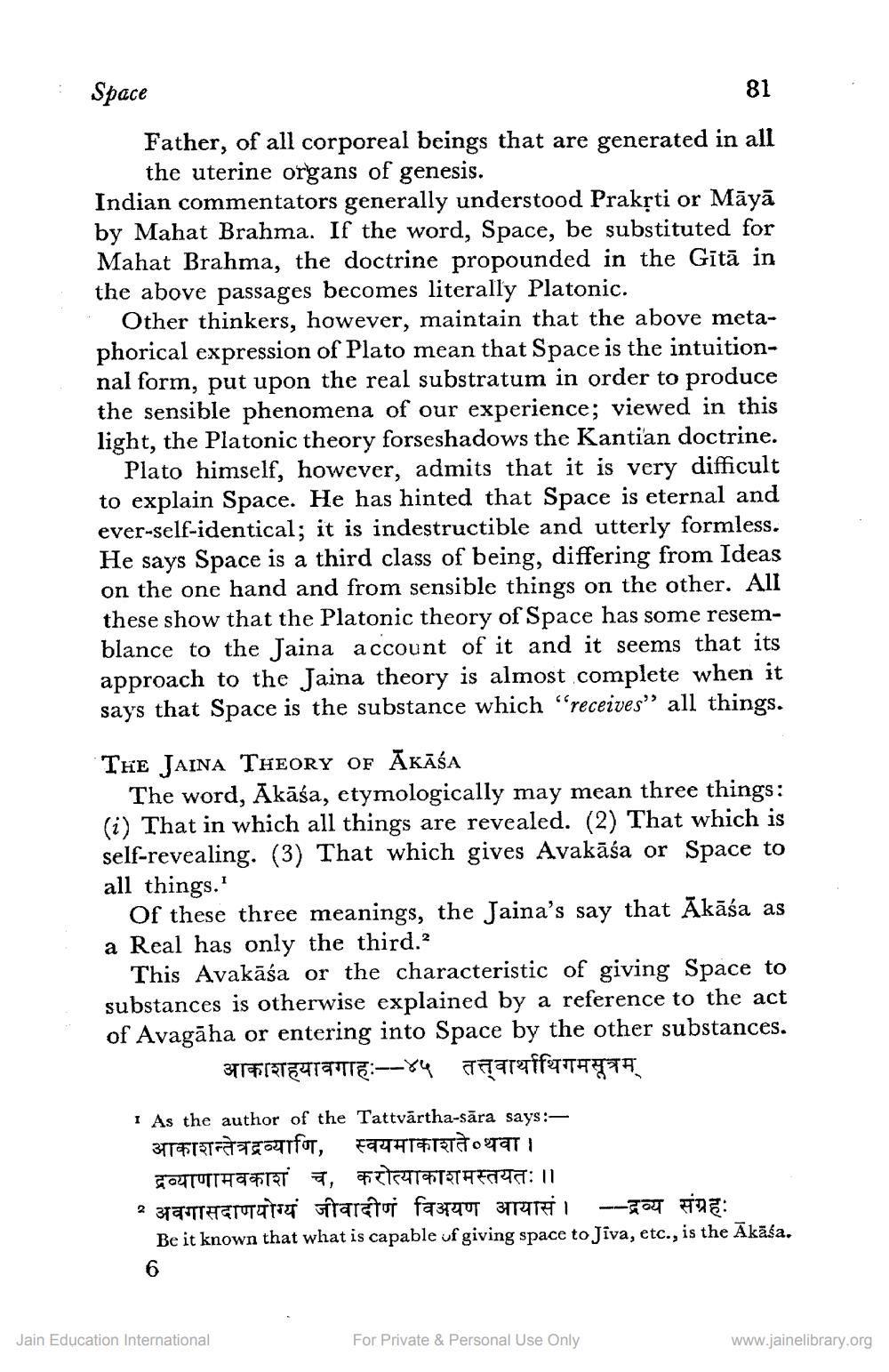________________
Space
81 Father, of all corporeal beings that are generated in all
the uterine organs of genesis. Indian commentators generally understood Praksti or Māyā by Mahat Brahma. If the word, Space, be substituted for Mahat Brahma, the doctrine propounded in the Gītā in the above passages becomes literally Platonic.
Other thinkers, however, maintain that the above metaphorical expression of Plato mean that Space is the intuitionnal form, put upon the real substratum in order to produce the sensible phenomena of our experience; viewed in this light, the Platonic theory forseshadows the Kantian doctrine.
Plato himself, however, admits that it is very difficult to explain Space. He has hinted that Space is eternal and ever-self-identical; it is indestructible and utterly formless. He says Space is a third class of being, differing from Ideas on the one hand and from sensible things on the other. All these show that the Platonic theory of Space has some resemblance to the Jaina account of it and it seems that its approach to the Jaina theory is almost complete when it says that Space is the substance which receives" all things.
THE JAINA THEORY OF ĀKĀŚA
The word, Ākāśa, etymologically may mean three things: (i) That in which all things are revealed. (2) That which is self-revealing. (3) That which gives Avakāśa or Space to all things.
Of these three meanings, the Jaina's say that Ākāśa as a Real has only the third.?
This Avakāśa or the characteristic of giving Space to substances is otherwise explained by a reference to the act of Avagāha or entering into Space by the other substances.
आकाशहयावगाहः--४५ तत्त्वार्थाथिगमसूत्रम् 1 As the author of the Tattvārtha-sāra says:
आकाशन्तेत्रद्रव्याणि, स्वयमाकाशते०थवा। द्रव्याणामवकाशं च, करोत्याकाशमस्तयतः ।। २ अवगासदाणयोग्यं जीवादीणं विअयण आयासं। --द्रव्य संग्रहः
Be it known that what is capable uf giving space to Jiva, etc., is the Ākāśa.
Jain Education International
For Private & Personal Use Only
www.jainelibrary.org




